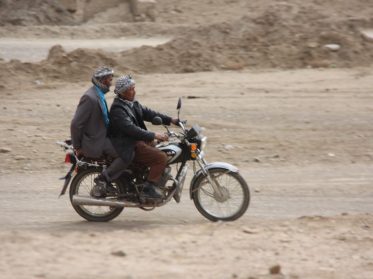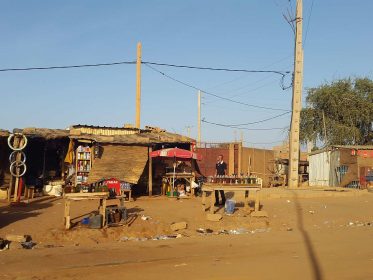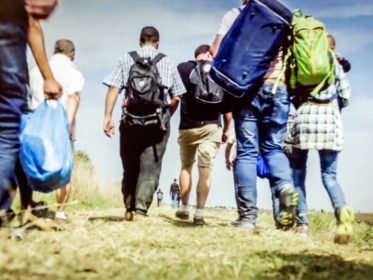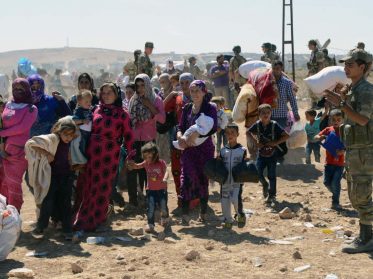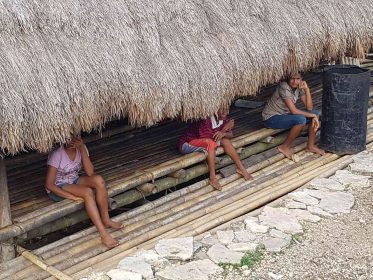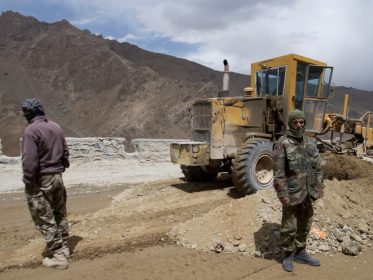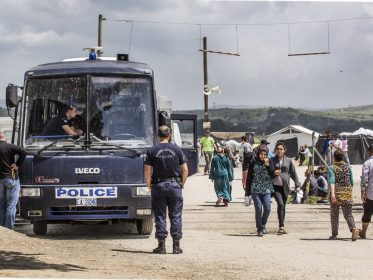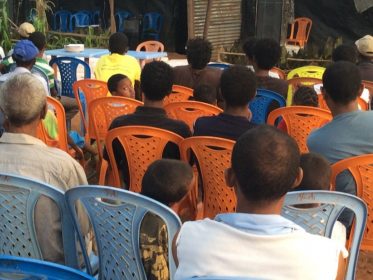Migration
Seefar is a social enterprise, which means we use the flexibility, speed and entrepreneurialism of a corporate structure to help vulnerable people build a better future. This means that Seefar reinvests our working capital into projects and initiatives to improve the lives of the most vulnerable. Our program for migration, displaced people, human trafficking and modern slavery is currently developing initiatives to address …
Skunk Works: Finding ways to solve the big issues of Migration Read More »
Seefar conducted an assessment mission in Mali and Niger to produce an action plan for the EU funded Global Action to Prevent and Address Trafficking in Persons and the Smuggling of Migrants (GLO.ACT) program. The GLO.ACT program is a four-year (2015-2019) joint initiative by the European Union (EU) and the United Nations Office on Drugs …
Combating migrant smuggling and human trafficking in Mali and Niger Read More »
Migrants in Europe are considered by many to be the ‘safe’ and ‘lucky ones’. However, migrants in Europe are still vulnerable. One of the biggest drivers of this vulnerability is access to information. Our research has shown that migrants in refugee camps or government centres in Europe feel they have insufficient information to understand the processes they are in …
In 2016, Seefar carried out research with Syrians, Sudanese, Afghans, Eritreans, Iranians, and Iraqis recently arrived in Europe. The aim of the research was to understand the potential for working with and through the UK diaspora in order to communicate with migrants intending to travel to Europe and those in transit. We conducted 900 surveys and compared the responses between the …
Since 2011, almost 5 million people have fled Syria. With over 2.9 million registered Syrians, Turkey currently hosts the largest community of Syrians displaced by the ongoing conflict. The conflict and its human impact is one of the greatest humanitarian and refugee crises in modern time. Through qualitative research, Seefar aims to understand the migration experiences of Syrians …
For Seefar, designing programs around low-skilled labour migration is a great opportunity to improve life for poor people. We are working with first time migrant domestic workers in Indonesia to ensure that they are able to better protect themselves from current exploitative industry practices. This will mean that they can benefit more from their employment abroad. However, the markets for this …
Helping migrant domestic workers in Indonesia benefit more from their Employment Read More »
Concern over irregular migration has for years seen EU policymakers utilize both ‘stick’ and ‘carrot’ to secure cooperation from origin countries in migration management. As the EU migration ‘crisis’ reached its apex in 2015, calls to link aid and migration intensified. Yet, the emergence of programs explicitly linking aid and humanitarian budgets to migration management objectives – …
Where next for migration and development in Afghanistan? Read More »
Migration issues have traditionally travelled in exile around the core development agenda. People moving to seek refuge or a better job have been seen as a consequence of development trends, rather than a primary target for development programming itself. With migration and asylum issues more prominent on the global agenda, governments are demanding the development industry address …
Why Migration Issues are Difficult for Aid Agencies Read More »
Field research is not easy or cheap – especially in tough environments. Establishing a realisticestimate of survey costs is an essential first step towards an ambitious, winning research proposal and effective project planning. For researchers who specialise in issues endemic to sensitive and sometimes dangerous contexts, it can be easy to dismiss data collection in …
Survey Cost Calculator: a new tool to expand research horizons Read More »
